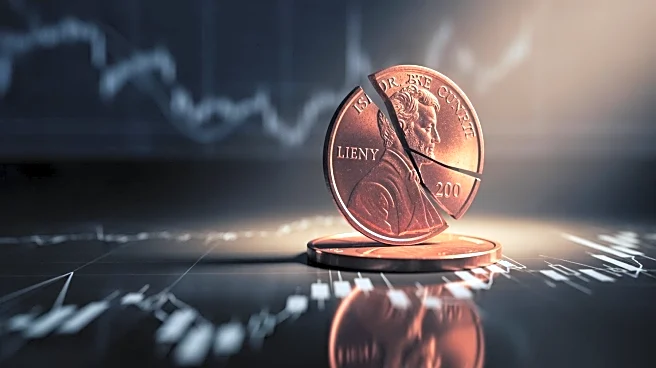What's Happening?
Uzbekistan is experiencing a significant increase in foreign investment, transforming from a peripheral Soviet republic to a key player in Central Asia. Since the death of former leader Islam Karimov in 2016,
President Shavkat Mirziyoyev has opened the country to global markets while maintaining ties with Russia. This shift has attracted major financial institutions like Citibank and JPMorgan to Tashkent, the capital. Investors from China, Turkey, and the Middle East are actively engaging, with American and European firms monitoring developments. Saudi Arabia's ACWA Power is involved in renewable energy projects worth $15 billion. Uzbekistan's economy has doubled since 2020, driven by rising gold prices and increased foreign direct investment, expected to reach $42 billion this year.
Why It's Important?
Uzbekistan's economic transformation is significant for several reasons. It highlights a shift in regional power dynamics, with China overtaking Russia as Uzbekistan's top financial partner. This change reflects broader geopolitical trends as Russia faces isolation due to sanctions over its actions in Ukraine. The influx of foreign investment is poised to boost Uzbekistan's economy, potentially doubling its size by 2030. This growth could position Uzbekistan as a central hub for economic activity in Central Asia, attracting technology, methods, and knowledge from global investors. However, challenges remain, including political opposition and human rights concerns, which could impact the country's ability to sustain its economic reforms.
What's Next?
Uzbekistan's future will likely involve continued efforts to attract foreign investment and implement economic reforms. President Mirziyoyev's constitutional changes could allow him to remain in power until 2037, providing political stability that may reassure investors. The country's youthful population, with over half under 30, presents opportunities for growth in fintech and digital payments, symbolizing modernization. However, the success of these initiatives will depend on the government's ability to address political and human rights issues, which could affect investor confidence. The international community will be watching closely to see if Uzbekistan can maintain its momentum and execute its reform plans effectively.
Beyond the Headlines
Uzbekistan's transformation raises questions about the ethical and legal dimensions of its rapid development. While economic growth is promising, the country's weak political opposition and human rights record remain concerns. Transparency International ranks Uzbekistan 121 out of 180 countries on its Corruption Perceptions Index, indicating ongoing challenges. The country's ability to balance economic progress with social and political reforms will be crucial in determining its long-term success. Additionally, the shift in regional alliances, with China becoming a dominant partner, could have broader implications for Central Asia's geopolitical landscape.










